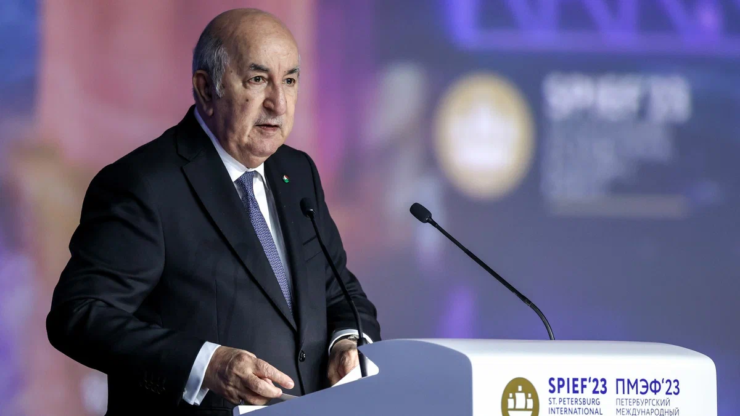
Despite Washington’s warnings, Algerian President A. Tebbun made a successful state visit to Russia
The state visit of the President of Algeria A. Tebbun to Russia, which took place from June 13 to 16, was distinguished by a more than full program, became a serious irritant for the United States, which would not want to see him in the Russian capital.
During his trip to the Russian Federation, the Algerian leader held extensive talks with his Russian counterpart Vladimir Putin and the Russian Prime Minister, spoke at the St. Petersburg International Economic Forum (SPIEF) and signed a number of bilateral agreements with Moscow, including a declaration on a deepened strategic partnership. This document, according to President Putin, marked “a new, more advanced stage in relations between the two countries”.
Moreover, President Tebboune inaugurated a square on Patriarchal Ponds in the historic heart of Moscow, named after Emir Abdelkader, Algeria’s national hero and founder of the modern Algerian state, who became a symbol of the struggle against French colonialism in the mid-19th century. The truly outstanding personality of this Muslim and Arab leader is of deserved interest to modern historians. There are events in Abdelkader’s biography that linked him closely to Russia when, in 1860, he saved the staff of the Russian consulate in Damascus and was awarded the honorary Russian Order of the White Eagle.
Such independent line of the president Tebboune on the eve of his visit to Russia caused noticeable irritation in the US and France, which transparently hinted to the Algerian leader that he should not go to Moscow. It is neither timely nor in line with the approach of the West, which is used to cavalierly handing out instructions to its satellites as to with whom and how relations can be built. However, Abdelmadjid Tebboune, like his historic predecessor, whose memory he commemorated in Moscow, has shown political firmness, loyalty to national interests and pointed out to the overzealous Westerners their place. “The United States is a friendly country, China is a friendly country, India is a friendly country and there is no problem with that. Being my friend does not mean that you tell me who I can visit. I will go to Russia,” was the Algerian president’s response to the visits of American and French politicians.
It is not surprising that such a bright and charismatic leader as Algerian President A. Tebbun, who confidently defends the interests of his country, has become inconvenient and undesirable for Washington. Just in case others on the African continent follow suit and do not allow the White House to easily impose its feudal vision of a future world order based on Western neo-colonial rules. However, by putting pressure on Algeria and other African countries, the Americans further increase distrust and irrevocably destroy any hopes for equal rights in Africa’s relations with the Western world.
However, as the outcome of the G7 summit in Hiroshima, Japan in May shows, the leaders of the so-called most industrialized countries had no intention of renouncing their own exclusivity and right to judge all and sundry. The collective West is in no hurry to apologize for its colonial past or to abandon it’s confrontational and Cold War mentality, turning the African continent into a springboard for confrontation with China and Russia and thus hindering the economic integration and development of the region.
Madi Khalis Maalouf, a political observer, exclusively for the online journal “New Eastern Outlook.”